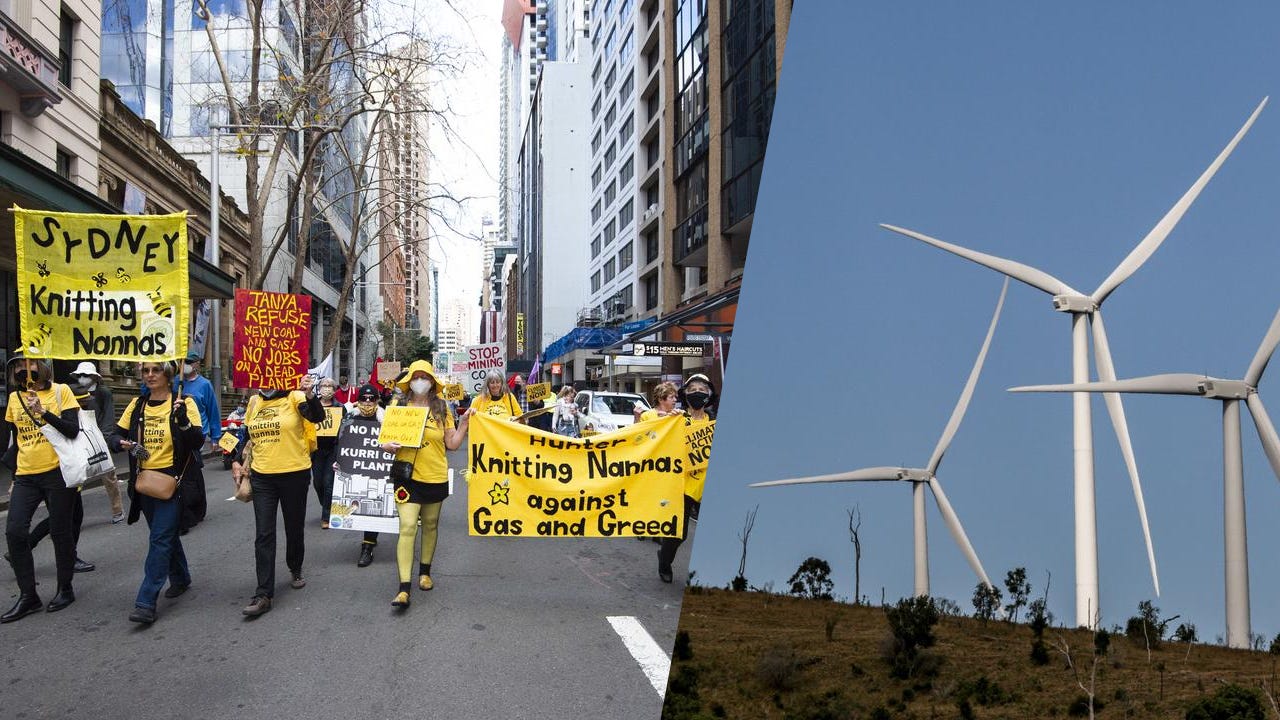Table of Contents
Jim Willmott
Chair Property Rights Australia and Beef Producer from Queensland. Wants to roll back red tape and reduce government intervention in our lives.
Rye Park woke to another radiant morning, sunlight spilling over a small rural village cradled between sprawling grazing lands and fertile farms. Settled in 1840, this patch of New South Wales, 300 kilometers southwest of Sydney and 100 kilometers from Canberra, had long thrived on its reputation for quality meat and wool. Like many Australian country towns, Rye Park hummed with a quiet resilience, neighbours looked out for one another, strangers were greeted warmly, and tough times were met with a collective roll-up-the-sleeves spirit.

Rosy, a lifelong resident, sipped her morning coffee at the kitchen table, gazing through wide windows at the rolling farmlands stretching to the horizon. The stillness of the countryside wrapped around her like a familiar blanket. She felt a quiet gratitude for this corner of rural Australia, where life unfolded simply and beautifully. A pristine creek ran near the village, its clear waters home to platypuses, turtles, and frogs, a shimmering thread of life that caught the sunrise as Rosy strolled to her job at the post office. “It doesn’t get better than this,” she mused, watching the light dance on the water.
As postmaster for the district, Rosy was the village’s heartbeat, chatting with locals who drifted in to send letters or collect parcels. Lately, though, the talk had shifted. Over the past two months, farmers had been buzzing about visits from renewable energy companies, “Big Wind,” as Rosy dubbed them, scouting land for vast wind turbine projects.
Landowners flanking the township and stretching south were being courted with offers to host these towering structures. Wind factories (Rosy refused to call them farms) dominated conversations, with folks peppering her with questions: “Heard anything new?” Little did she know, this was the dawn of a seismic shift for Rye Park.
Three years later, the village is unrecognisable. The once-peaceful landscape groans under the weight of industrialisation: dust, noise, and endless disruption have replaced the serenity Rosy once cherished. Community meetings, both grassroots and the occasional “consultative” sessions run by Big Wind, have left residents weary. The promises of prosperity feel hollow against the reality of fractured lives and a scarred countryside.
Across the district, turbines loomed, hundreds of them, encircling Rye Park in a 40-kilometer industrial vice.
Big Wind had swept in with grand assurances: their turbines would be cutting-edge, clean, green, and silent. They dangled visions of community funds, upgraded roads, booming schools, and better services, an economic lifeline for a rural district. Their slick representatives, who Rosy nicknamed “Greasers” for their polished pitches, delivered these promises like revivalist preachers.
“Trust us,” they’d intone at packed town halls. “Don’t buy the scare stories. These wind factories are efficient, affordable, and eco-friendly. You’ll be heroes in the fight against climate change.”
The Greasers painted a rosy picture: turbines would tame the weather, cushion farmers against drought and low prices, and whisper so quietly you’d forget they were there. “You won’t even see them unless you squint,” one boasted, strutting across the stage, waving reports stamped with government approval. To many, it sounded like a win-win, extra income for landowners, green energy for the nation, and no downsides. Half the community bought the sermon; the other half harboured doubts but lacked the hard data to push back.
Rosy, looking back, sees how naive they’d been. Farmers who signed up for turbine leases saw dollar signs but didn’t foresee the fallout, plummeting property values for neighbours, privacy eroded, biosecurity risks, and a battered ecosystem. The scenic vistas vanished, livestock grew skittish, and aerial farming, fertilising or firefighting, became a logistical nightmare.
When grumbles surfaced, the Greasers doubled down, brandishing “independent” studies that dismissed every concern. Creeks and wildlife? “Minimal impact,” their hired experts swore, promising rehabilitation and offsets to sweeten the deal. Who could argue with science blessed by bureaucrats?
But the hypocrisy stung. Farmers risked penalties for felling a single tree on their own land, yet Big Wind razed thousands, carving access roads and turbine pads with impunity, all in the name of saving the planet. Noise complaints? The Greasers waved charts showing compliance with mandated setbacks. “Nothing to hear,” they’d smirk. Traffic worries? “Staggered deliveries, barely noticeable,” they pledged, vowing swift action if their drivers stepped out of line.
The Greasers’ charm offensive peaked with a litany of perks: new footpaths, better drainage, a spruced-up CWA hall, a playground cover for the school. “Jobs! Growth! Families moving in!” they thundered. “You’re lucky to get this $1.2 billion investment – $150,000 a year into your community fund, indexed to inflation. Who’d say no?”
The local council, once a bulwark against Big Wind, softened as the cash rolled in. Sceptics in the crowd groaned, sensing the sellout.
Years on, the promises lie in tatters. The main street, never meant for heavy haulage, became a choked artery of gravel trucks and turbine parts. At peak times, traffic rivalled Sydney’s worst gridlock, vibrations rattling homes, cracking tiles, and toppling pictures. Noise hit 100 decibels, a relentless roar that drowned out complaints. The Greasers, onto their next conquest, left a revolving door of staff to dodge accountability.
The toll went beyond the physical. Rye Park’s spirit frayed. Neighbours who’d once rallied through floods and fires now bickered, those who leased land clashed with those left bearing the burdens uncompensated. Volunteerism withered: the rural fire brigade limped along with half its crew. The school saw no influx of students, no new homes rose, and the community fabric unravelled.
Landowners flanking the township and stretching south were being courted with offers to host these towering structures.
Farmers rued the devastation. Ron, an 80-year-old sheep farmer whose family had worked the land for generations, stormed into the post office one day, trembling with rage. “They lied, Rosy,” he spat. “Our creek’s choked with gravel, the water’s muddy, platypuses gone. Big Wind sank a bore without asking, sucking our stock water dry. If I tried that, I’d be tied up in red tape for a year.”
Tears streaked his weathered face. “Aerial fertilising’s out – too risky near turbines. What happens when the fires come?”
Ron wasn’t alone. His daughter Linda, hollow-eyed from sleepless nights, later confided, “The noise is unbearable, like a jet that never lands. We’ve got blankets on the windows, but it’s no use.” Her family teetered on leaving.
Across the district, turbines loomed, hundreds of them, encircling Rye Park in a 40-kilometer industrial vice. The pristine views were gone, replaced by steel giants that tainted the soil and fouled the streams.
The irony gnawed at Rosy, a paradise sacrificed to greed masquerading as virtue. Big Wind’s gospel of growth had delivered division and decline. The village, once a bastion of mateship, now simmered with anger and grief. Volunteer groups faltered, trust eroded, and a creeping despair settled in.
“We let it slip away,” Rosy thought, locking the post office and trudging home along Big Wind’s lone gift, a stub of footpath. The turbine hum followed her, a cruel lullaby. An extra glass of wine might dull the ache tonight.
Worse, the invasion wasn’t over. Word came of another Greaser sniffing around, pitching a new wind factory southwest of town. As Rosy drifted to sleep, the wind stilled, but the dread didn’t. Rye Park’s fight was far from finished.
This article was originally published by Liberty Itch.









